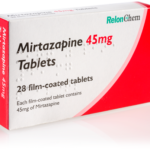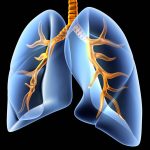There Is No Evidence Low Serotonin Causes Depression – New Study

Serotonin, also known as 5-hydroxytryptamine is a monoamine neurotransmitter that carries messages between nerve cells in the brain and throughout your body. Serotonin plays a key role in such body functions as mood, sleep, digestion, nausea, wound healing, bone health, blood clotting, and sexual desire.
Low serotonin level was previously thought to be the primary cause of depression. But a new study is reporting that there is no convincing evidence that low serotonin levels are the primary cause of depression. This is the conclusion of an “exhaustive” review by UK investigators, which upends the widely held belief that depression is the result of lower levels, or reduced activity, of the chemical. Researchers say the results call antidepressant use into question.
“We found no consistent evidence in the main avenues of serotonin research that there is an association between serotonin and depression, and we found no support for the hypothesis that lower serotonin activity or concentrations are responsible for depression,” senior author Mark Horowitz, GDPsych, MBBS (Hons), Ph.D., of the Division of Psychiatry, University College London, UK, told Medscape Medical News.
“It’s not an evidence-based statement to say that depression is caused by low serotonin; if we were more honest and transparent with patients, we should tell them that an antidepressant might have some use in numbing their symptoms, but it’s extremely unlikely that it will be the solution or cure for their problem,” he said.
The study was published online on July 20 in Molecular Psychiatry.
Amplified by Industry
The theory that low serotonin levels may be the cause of depression was first proposed in the 1960s, but the investigators note that it was only one of several hypotheses. Nevertheless, they report it caught on and has been “influential for decades and provides an important justification for the use of antidepressants.”
The authors add that with the advent of selective reuptake inhibitors in the 1990s, the serotonin hypothesis was widely publicized. Recent surveys show that 80% or more of the public now believe this theory.
“Most people think that depression is caused by a ‘chemical imbalance’ in their brains or by low serotonin, and this is what many doctors tell patients who are depressed,” Horowitz said.
“It has been known in academic circles that no good evidence has ever been found of low serotonin in depression, but drug company marketing has amplified the ‘chemical imbalance’ and low serotonin hypotheses,” he continued.
Horowitz and colleagues “wanted to settle this question” by conducting a comprehensive systematic umbrella review of all studies through December 2020 as to whether low serotonin levels are associated with depression. They investigated the following six hypotheses:
- Lower levels of serotonin and its metabolite 5-HIAA are found in body fluids of people with depression.
- Altered serotonin receptor levels occur in people with depression.
- Higher levels of SERT occur in people with depression.
- The induction of depression occurs through tryptophan depletion (which lowers available serotonin).
- Higher levels of the SERT gene occur in people with depression.
- There is an interaction between the SERT gene and stress in people with depression.
Of 361 publications, 17 were selected for inclusion in the review. These included meta-analyses, systematic reviews, a genetic association study, and an umbrella review that encompassed more than 165,000 patients.
To study the serotonin and 5-HIAA hypothesis, they turned to three large observational cohorts of postmenopausal women that investigated serotonin and 5-HT or 5-HIAA in plasma or cerebrospinal fluid (CSF). Although patients with depression did have lower levels of plasma 5-HT, the difference did not reach statistical significance, after adjusting for multiple comparisons.
A meta-analysis of 19 studies of 5-HIAA in CSF “found no evidence of an association between 5-HIAA concentrations and depression.”
The 5-HT1A receptors inhibit the release of serotonin presynaptically; thus, if depression is caused by reduced serotonin activity attributable to receptor abnormalities, people with depression “would be expected to show increased activity of 5-HT1A receptors, compared to those without.”
But two meta-analyses found either no difference in the 5-HT1A receptors between people with depression or control persons or a lower level of these inhibitory receptors, “which would imply higher concentrations or activity of serotonin in people with depression.”
Patients in these studies were taking or had recently taken antidepressants, so it is possible that this influenced the findings.
The SERT protein transports serotonin out of synapses, thereby lowering its synaptic availability. Three overlapping meta-analyses suggested potential reductions in SERT binding in some brain areas, but the findings were not consistent across reviews, and the “effects of antidepressants and other medication cannot be ruled out.”
“It was thought that different levels of the [5-HT1A] receptors were responsible for depression, so if there are fewer receptors, there is less serotonin activity. But neuroimaging of serotonin receptors in the brain showed no difference between people with and without depression,” Horowitz noted.
“Suspect Statement”
Tryptophan depletion has been thought to reduce serotonin and has been utilized to investigate whether lower serotonin levels might lead to depression, Horowitz said.
However, a meta-analysis and a systematic review of studies on tryptophan depletion showed that depletion had no effect on inducing depression in participants, although a small meta-analysis of people with a family history of depression found that those who underwent active depletion experienced a greater decrease in mood in comparison to those who underwent a sham procedure.
Another study found no differences in patients with and in those without a family history of depression, and two crossover studies of persons with depression and current or recent antidepressant treatment found “no convincing effects” of depletion.
The genetic theory suggesting a “possible link” between depression and the repeat-length polymorphism in the promoter region of the SERT gene (5-HTTLPR) has been proposed and has recently been superseded by the suggestion that genetic polymorphism “may only give rise to depression in the presence of stressful life events.”
Two large studies did not show an association between the SERT gene polymorphism and depression or an interaction between the SERT gene and stress in depression.
“To say that any chemical ’causes’ depression is probably a very suspect statement because depression is a complex emotional and behavioral state that of course involves chemicals — but the idea that it can be pinpointed on a single chemical seems very unlikely,” said Horowitz.
“This endless search for a single chemical that causes depression is probably looking in the wrong place because there’s such strong evidence that circumstances of our lives — stressful life events, poverty, work insecurity, relationships — have a strong effect on the risk of depression.
“Our time is better spent by changing circumstances that lead to depression rather than trying to decipher the chemical equation of depression.”
In a release, the study’s lead investigator, Prof Joanna Moncrieff, professor of psychiatry, at University College London, said the study findings call antidepressant use into question.
“Epidemic proportions of the UK population are using antidepressants at the moment. Thousands of people suffer from their side effects, including the severe withdrawal effects that can occur when people try to stop them, yet prescription rates continue to rise. This situation has been driven by the promotion of the false belief that depression is due to a chemical imbalance. It is high time to inform the public that this belief is not grounded in science.”
Incomplete Understanding
Commenting for Medscape Medical News, Roger McIntyre, MD, professor of psychiatry and pharmacology, University of Toronto, Canada, and head of the Mood Disorders Psychopharmacology Unit, acknowledged that science still has a “very incomplete understanding of the pathogenesis of the major depressive disorder.”
However, “it is also true that through much of the past seven decades, many people have benefited from antidepressants that are known to target the serotonin system. That led to the inevitable conclusion that perhaps serotonin dysregulation may play a part in the pathogenic process in MDD,” said McIntyre, chairman and executive director of the Brain and Cognitive Discover Foundation, Toronto, who was not involved with the study.
“Notwithstanding the logic of that conclusion, there are clearly many assumptions inherent in it,” he continued. “‘Perhaps an overused metaphor is that if Tylenol helps a headache, you likely would not conclude that the headache was due to a Tylenol deficiency.”
However, he added, in the absence of a greater understanding of the mechanisms underlying major depression, he is concerned that some may misinterpret the study and stop prescribing antidepressants.
The “serotonin hypothesis of depression still remains to be fully understood, [but that] does not negate the efficacy, safety, and tolerability of serotonin-based antidepressants,” he said.
“We need better knowledge of the disease, and it is also the case that serotonergic modulation can help depression. We certainly need better treatment, and we should be careful that we do not become constrained by the paradigm of serotonin,” McIntyre concluded.
The study received no specific funding. Horowitz is supported by a clinical research fellowship from North East London NHS Foundation Trust. The other authors have disclosed no relevant financial relationships. McIntyre has received research grant support from CIHR/GACD/National Natural Science Foundation of China and the Milken Institute; speaker/consultation fees from Lundbeck, Janssen, Alkermes, Neumora Therapeutics, Boehringer Ingelheim, Sage, Biogen, Mitsubishi Tanabe, Purdue, Pfizer, Otsuka, Takeda, Neurocrine, Sunovion, Bausch Health, Axsome, Novo Nordisk, Kris, Sanofi, Eisai, Intra-Cellular, NewBridge Pharmaceuticals, Viatris, AbbVie, and Atai Life Sciences and is a CEO of Braxia Scientific Corp.
Mol Psychiatry. Published online July 20, 2022. Full text





